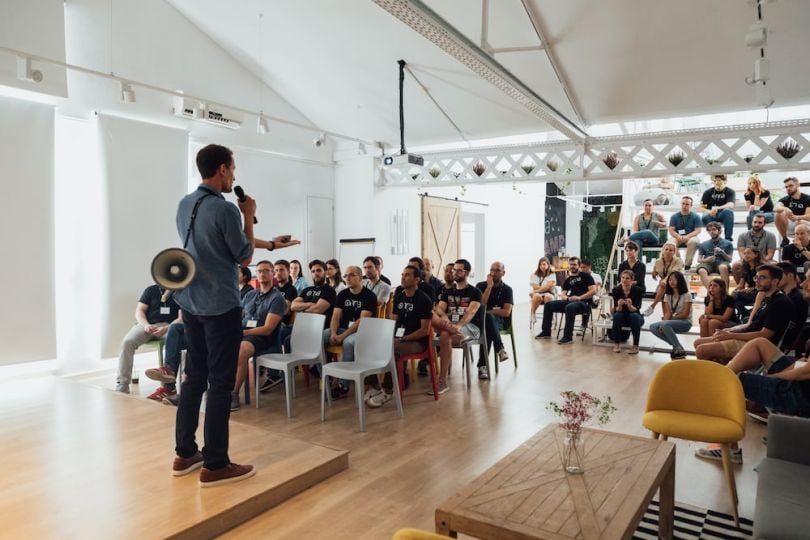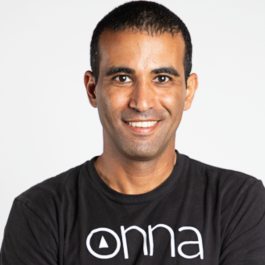
Ever search your email inbox with a keyword in hopes it will generate what you’re looking for, only to be met with “zero results?”
Now imagine that happening in the workplace.
This time, however, not only are you unsure of the proper keyword to search, you also don’t know which business application the document lives in.
Google Drive? Slack? Dropbox — where is it?
Onna, an NYC-based knowledge integration platform, is experimenting with machine learning technology that would make it possible to find that document without knowing the exact keyword or its hosted application. Using natural language processing, which combines linguistics and computer science to understand human language, Onna’s solution would pull results based on intent instead of direct matches.
This marks one example of how Onna is using machine learning to better serve its clients and is representative of how companies are discovering new use cases for the evolving technology.
For a deeper understanding on how NYC tech is leveraging machine learning, we caught up with Onna Principal Architect Ismael Alaoui and Citizen Software Engineer Nikunj Aggarwal.
When Citizen engineers couldn’t find a machine learning system that could analyze emergency radio calls, they created their own. By doing so, Software Engineer Nikunj Aggarwal said they were able to expand their safety app to more cities.
How does Citizen use machine learning?
Citizen scans thousands of public first responder radio frequencies 24 hours a day in major cities across the U.S. The collected information is used to provide real-time safety alerts about incidents like fires, car crashes and missing persons to our more than 7 million app users. Having humans listen to 1,000-plus hours of audio daily made it challenging for us to launch new cities. So, we decided to try to use machine learning to better discover critical safety incidents from the audio.
We evaluated several existing systems to help with this problem. However, most models available are trained on phone audio which is acoustically very different from audio from radios. Also, public safety dispatchers use a lot of jargon that isn’t used in normal conversations, so none of the existing models were performant. Eventually, we built a convolutional neural network trained on audio from police radios which helped us solve this problem.
What impact has machine learning had on your business, product or the customer experience?
Machine learning has had an impact on many levels. Our deep neural network, which helps detect critical safety incidents from first responder radio, reduced our operational load and allowed Citizen to expand rapidly into cities across the country, which served our mission of making your world a safer place.
In addition, our Bidirectional Encoder Representations from Transformers (BERT)-based neural network, which was built to detect hate speech, has resulted in a safer environment for our users to share their own safety updates.
Finally, we use machine learning to rank user-generated videos captured on the platform. This lets our Citizen users get the most relevant information quickly.
We decided to try to use machine learning to better discover critical safety incidents from the audio.”
What excites you most about the work you’re doing?
Our mission to make your world a safer place resonates a lot with me. On a daily basis, I can see the impact of products I’m shipping on people’s lives. It’s always exciting to hear feedback from my friends on how they are using the app. A lot of unexpected things are happening around the world, and I get to use technology to help people!
I also really enjoy the fact that we invest in ambitious projects such as building deep neural networks in-house, which keeps my work challenging and provides a great learning experience.
Onna’s knowledge integration platform links applications used across a work environment so that documents can be easily searched for and located. Principal Architect Ismael Alaoui shared how machine learning plays a key role in Onna’s goal to provide businesses with a “single source of truth.”
What’s a surprising or interesting way Onna is using machine learning?
One of Onna’s key functions is the ability to help users surface content that they might not even know they have. Machine learning is a huge part of that. With optical character recognition, we process documents and images to extract text from any data source we support, which is currently more than 30 sources and includes PDFs of digitized paper documents. As new needs and use cases arise, we’re able to train models to categorize documents and search for things like signatures in PDF documents or ID cards and passports in a user’s data store. We’re also experimenting with natural language processing technology that will make it even easier for users to find what they’re looking for by capturing the intent of their search, like enabling searches as specific as “find my documents in Slack about machine learning from the past month.”
What impact has machine learning had on your business, product or the customer experience?
Machine learning is integral to how we empower our customers to harness their data. The technology behind our product has been designed to make it easy for new models to be integrated. Once a customer sees what’s possible with our models, they can build on our platform with their own models that are specific to their domain or industry. We give customers access to their data across many different applications that contain siloed info and machine learning is how we tap into that information and make it accessible.
It’s very rewarding to be doing something that hasn’t been done before in helping companies access and understand all of their data holistically.”
What excites you most about the work you’re doing?
What’s so exciting about Onna is that we’re building our platform in a way that allows us to constantly experiment and prove value as new applications arise. The possibilities are endless. A passion project for me is keeping up-to-date with the latest happenings in the industry and researching new, concrete applications that will benefit our customers. We’re also passionate about moving our product forward in line with our commitment to the highest ethical standards in how we develop, deploy and maintain trustworthy AI and other digital products.
Overall, it’s very rewarding to be doing something that hasn’t been done before in helping companies access and understand all of their data holistically, whether it exists across different cloud providers or on premise. We’re enabling companies to build a central, responsive and intelligent repository that acts as a secure and private “single source of truth.”








